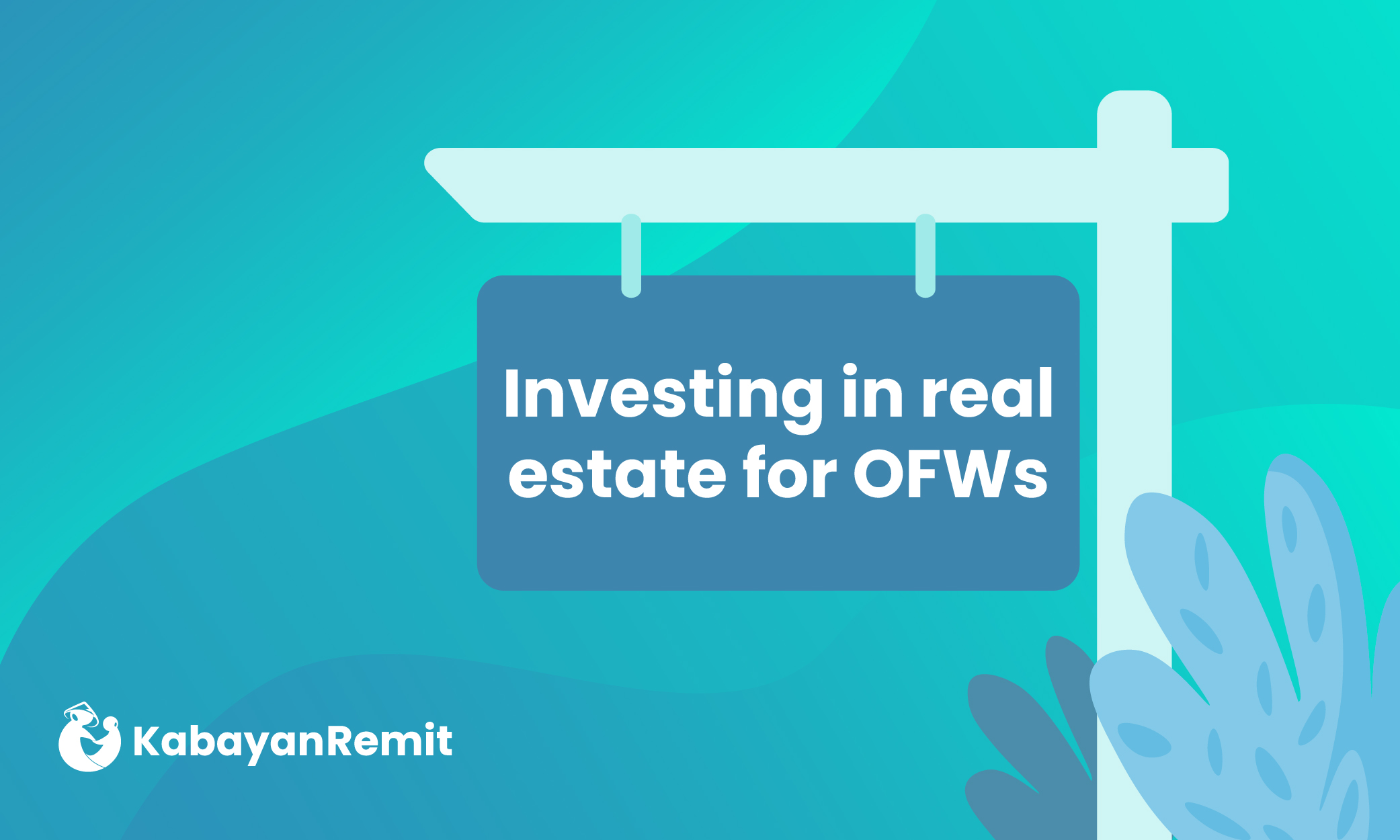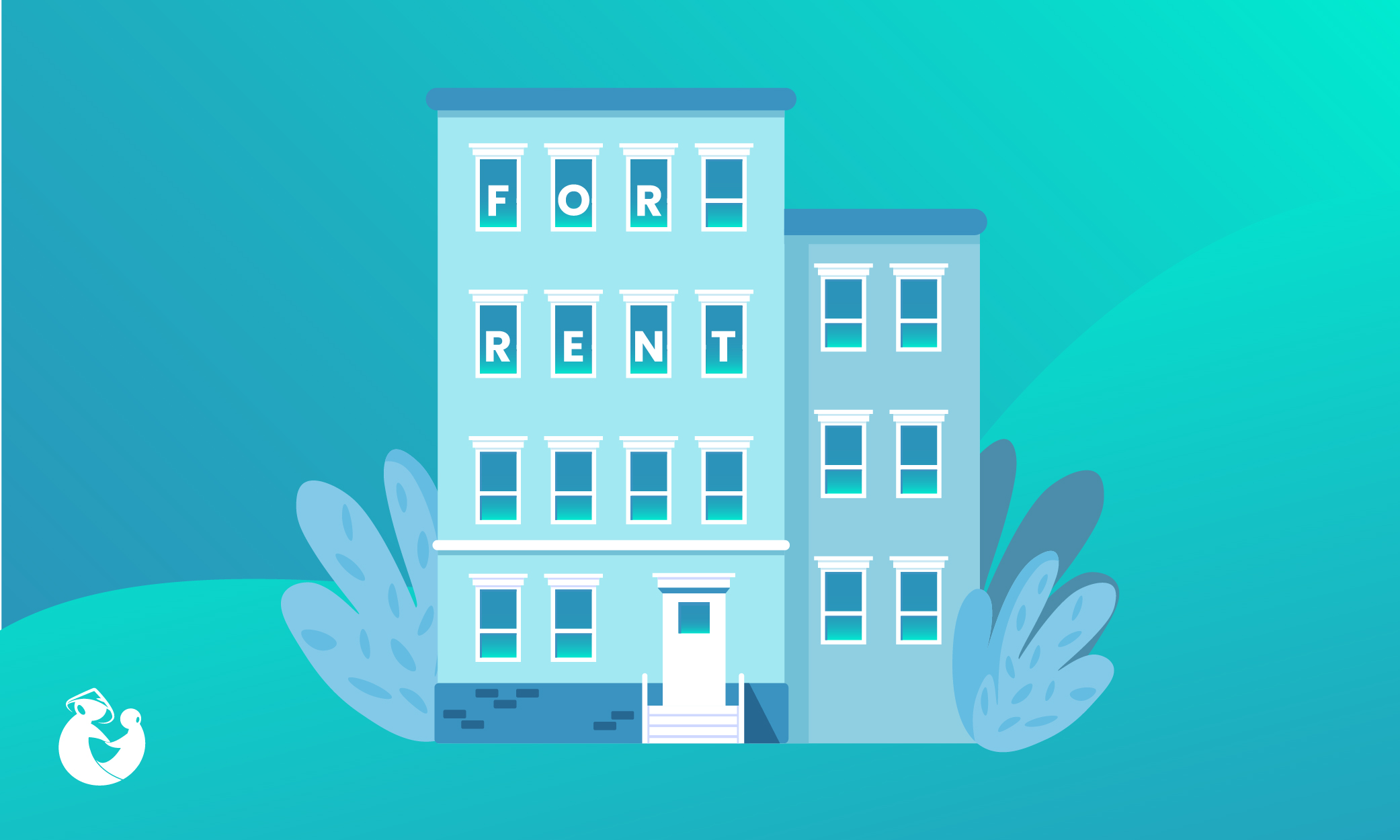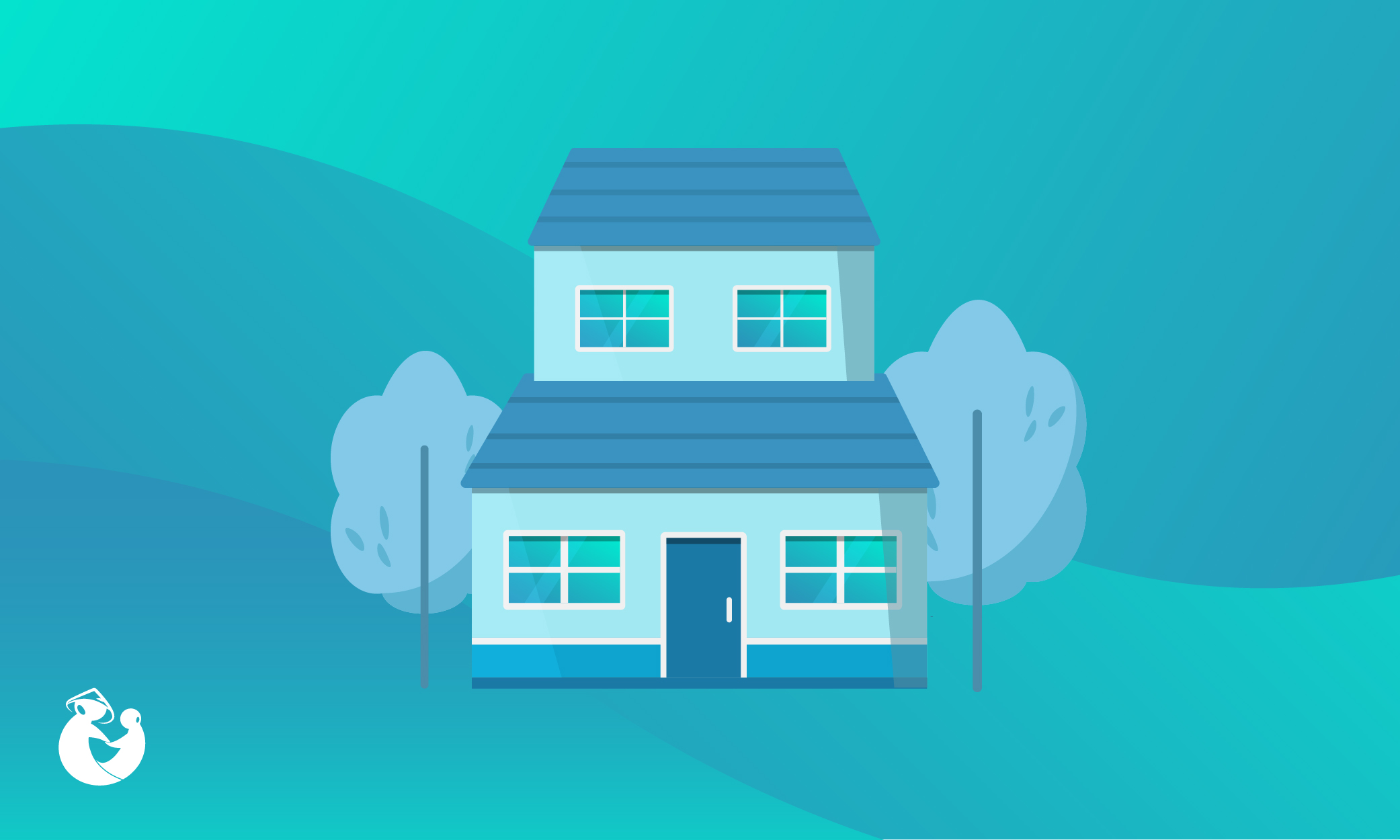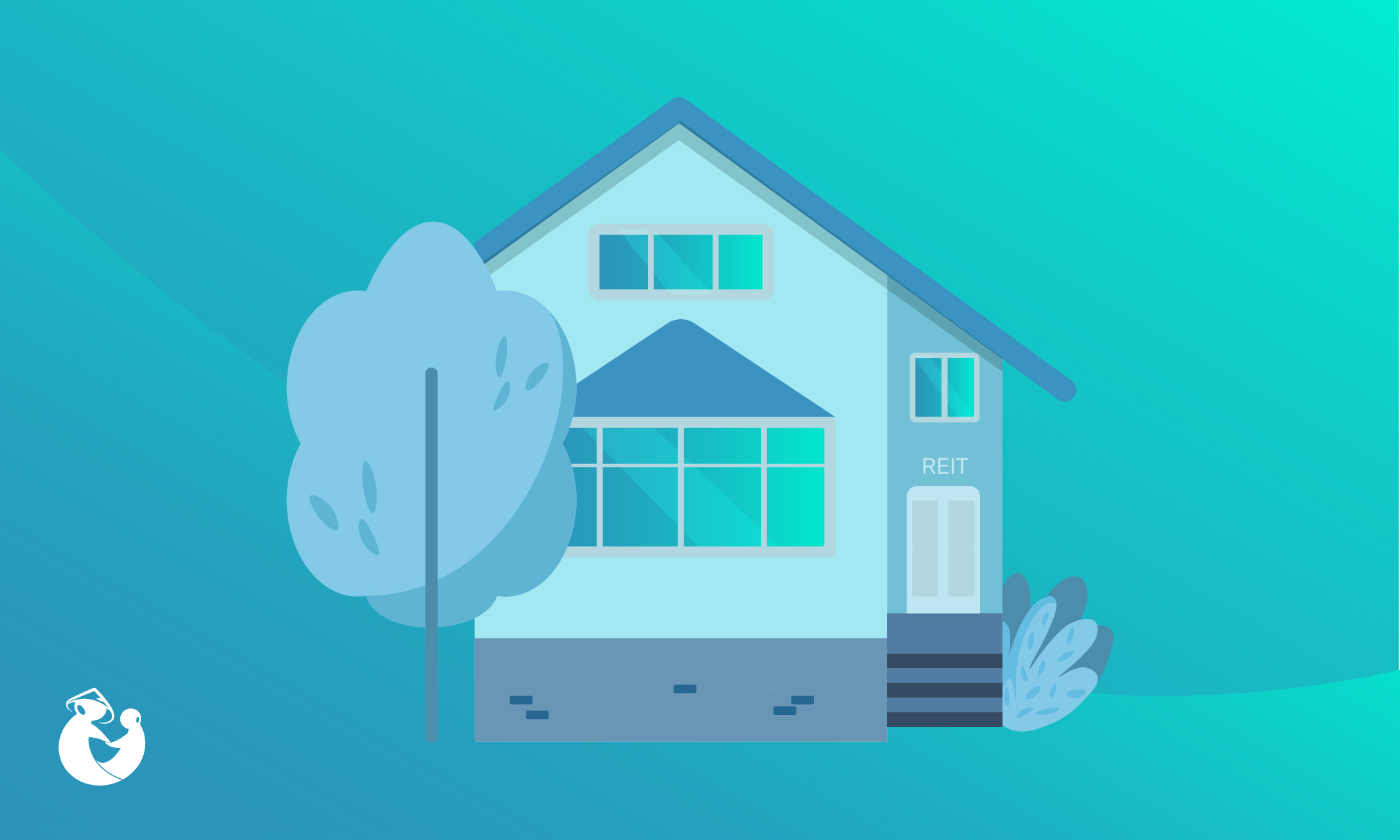
Investing in real estate for OFWs
Is it a good idea for Overseas Filipino Workers (OFWs) to invest their money in real estate? Being an OFW means working to support your loved ones back home; however, it also means preparing for a future where you no longer need to leave them behind.
Being ready for the future could be securing citizenship in a new country or it could mean finding a way back to the Philippines.
But how do you achieve the latter?
In previous articles, we’ve already talked about the different types of investing, but we’ve only briefly mentioned investing in real estate.
Let’s talk about it more today.
What is real estate?

Real estate is a parcel of land plus improvements. Improvements may naturally be part of the land, like trees and water, but they may also be added by people, such as buildings and roads.
If you’re thinking of investing in real estate in the Philippines, these are the types of real estate according to Philippine real estate developer CrownAsia:
- Special purpose real estate – Space allotted for education, worship, recreation, and other similar community activities
- Agricultural lands – Real estate allotted for farming, ranching, and other similar endeavours
- Industrial real estate – Space to accommodate the cycle of making and sending out goods at a large scale
- Commercial real estate – An area where you’ll usually find malls, offices, and other places of business
- Residential real estate – An area assigned to homes, such as single-family houses, duplexes, and condominiums
For this article, we’re going to focus on residential real estate. Read on to find out how you can earn by owning or investing in property.
Making money by investing in real estate
The way you’ll grow your money through real estate will depend on how much risk you want to take on and how much you are willing to invest. Below, we’ve highlighted some of the common ways you can generate income through real estate:
Owning a rental property

When you own a rental property, you act as a landlord who leases out their home, keeps the property in good shape, and deals with tenants.
But first, you’ll need a house, condo unit, or apartment. You may be able to get that property by loaning some money for a down payment. Then, you can use what you earn from rent to pay what you owe plus interest.
This could be a good move if it’s likely you’ll profit from this investment but remember to only invest what you can afford. You’ll also need to save up to make the down payment for a home or to pay back the loan, especially in times when there are no tenants and no rental income.
Along with the risk of vacancies, you’ll also have to devote a chunk of your time to dealing with tenants, their needs, and their requests or complaints once you do find occupants for your home. You’ll also spend time maintaining your property to make it competitive with other available units.
On the positive side, successfully owning a rental property means you’ll have a steady source of income from rent. Three ways you can earn from renting your property are:
- Long-term rentals – Your tenant stays in your property for at least a year and pays a monthly rent
- Short-term rentals – Various tenants book your property for a night or a few days, like an Airbnb
- House Hacking – You rent out a room or part of a home you’re currently living in, or you rent out one of the units in your multi-family property
Buy and Hold

You may be able to save and make more money if you choose to own and live in a house instead of renting it out to others.
According to Bankrate, “If you’re planning to stay in an area long-term, it can make sense to purchase a home because you’ll be able to lock in a monthly payment that may be as affordable as rent. Plus, banks treat owner-occupied properties more [favourably], giving borrowers a lower mortgage rate and requiring a lower down payment.”
Once you’ve bought your house, you can hold it by living in it for a few years until the property value goes up high enough to sell for a profit.
However, there are still some cons when you choose this strategy for investing in real estate.
There’s a chance your house’s value depreciates because of unforeseen circumstances or events. What if the subdivision you bought a house in didn’t click with buyers like you had hoped?
When it comes to buying a house, you’d also need enough money to make a down payment as well as a stable source of income to pay your mortgage. And, like owning a rental property, you’d have to be ready to spend for major repairs in your own home should the need arise.
Investing in real estate investment groups (REIGs)

REIGs are business partners whose main source of income is building, buying, and selling real estate.
When you invest in a REIG, you become a home or unit owner in one of their projects and earn by renting out the property. The REIG will oversee property management and find tenants for you, so you won’t have to put as much energy compared to a landlord overseeing their own rental property.
But while there’s a potential to earn with REIGs, you may also face these risks:
- It may take more time for the REIG to find a tenant, so it will also take longer to get a return on investment.
- Part of your earnings will still go to paying the REIG for managing your property.
- The REIG may lack experience or may be untrustworthy, resulting in a bad investment.
Remember: Before you let go of any money, do your research, and vet investment groups.
House Flipping

For those who are veterans in investing in real estate, house flipping may be the way to go. If you go this route, you’ll buy a property at a lower value, renovate it, and sell the improvements at a higher price.
But experience isn’t the only key to success with this investment technique. You’ll have to understand the real estate market too. You’ll also need enough capital to turn a low-value house into a high-value home.
If you fail to make a winning strategy, you can risk:
- Going over budget with renovations
- Undervaluing your home
- Taking on more mortgage payments than planned because you can’t find a buyer
These risks may lead to losing your money instead of earning more.
For those who are ready to take on these risks, try working with a real estate broker who can help you turn a profit.
Investing in real estate investment trusts (REITs)

Like REIGs, real estate investment trusts or REITs rely on investors to buy, build, and sell real estate. Unlike REIGs, REITs skip out on corporate income tax by distributing most of their profits as dividends, or shares earned by their investors.
Additionally, REITs earn in two ways:
- Equity REITs – Earn through owning and renting real estate
- Mortgage REITs – Earn through interest from their home loans
Investing in real estate through REITs is also like investing in stock.
According to Investopedia, “REITs are bought and sold on the major exchanges, like any other stock.”
This means you can easily buy and sell and your shares for cash without having to deal with a real estate broker.
Investing in real estate crowdfunding

If you’re looking to invest in the next big real estate development, going on real estate crowdfunding platforms could work for you.
With this method, you’ll go to a crowdfunding platform like Fundrise or RealtyMogul and put your money in one or more real estate projects. As a project comes to fruition, you should be able to get a regular return on investment.
Lastly, only invest what you can afford to lose. You’ve worked so hard to make enough money to return to the Philippines, so you should be careful with your savings.
If you’re willing to take on the risk and go ahead with this strategy, read up on the real estate companies on these crowdfunding platforms before you invest in their projects. This way, you can ensure your money will go to a group with a good track record.
If it doesn’t go well, you won’t be able to sell your shares for cash as easily as you would with REITs, and you’ll have to pay the platform’s management fees too.
However, there is some guesswork involved in this endeavour. Basically, you’re predicting that the project you’ve invested in will perform well.
According to Nerdwallet, “Investors hope to receive monthly or quarterly distributions in exchange for taking on a significant amount of risk and paying a fee to the platform.”
Investing in real estate in the Philippines

You can also learn how you can safely pay your real estate investments from the comfort of your own phone by talking with our 24/7 bilingual support team here.
If you’re still looking for real estate development in the Philippines, you may want to invest in one of the trusted brands in Kabayan Remit’s roster.
